Key takeaways:
- PHP is a versatile server-side scripting language with strong community support, facilitating easier web development.
- Key programming concepts in PHP include variables, functions, and control structures, which enhance code management and user interactivity.
- Best practices such as code readability, documentation through comments, and version control are essential for effective coding and collaboration.
- Advanced techniques like object-oriented programming and design patterns improve code structure and efficiency in PHP projects.
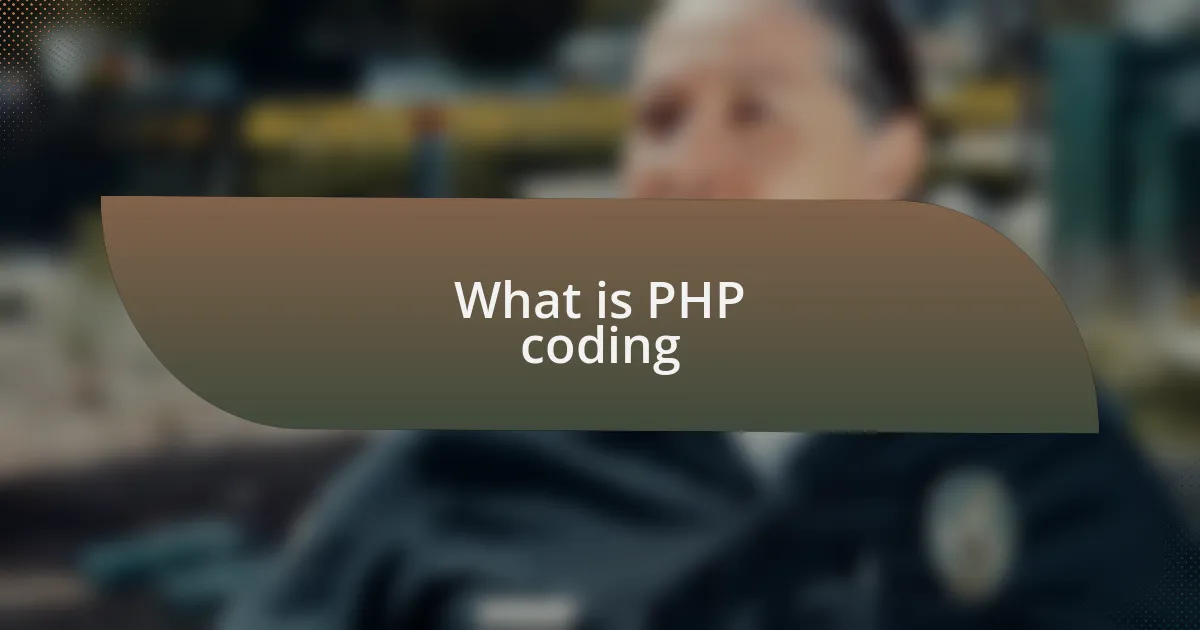
What is PHP coding
PHP, which stands for “Hypertext Preprocessor,” is a server-side scripting language widely used for web development. I still remember the thrill of my first time using PHP to create a dynamic web page that interacted with a database. It sparked my fascination with coding, as it opened up possibilities like fast content management and seamless user interactions.
One thing that stands out about PHP is its ability to integrate with various databases, especially MySQL. I once spent hours troubleshooting a database connection error, only to discover the solution was a single misplaced character in my code. This taught me how critical attention to detail is in programming; small mistakes can lead to big roadblocks.
What truly captivates me about PHP is its ease of learning and wide community support. Have you ever found yourself stuck on a coding problem? The PHP community is filled with forums, tutorials, and resources to help troubleshoot those frustrating moments. It’s like having a vast library of knowledge at your fingertips, which makes the journey into web development less daunting and more enjoyable.
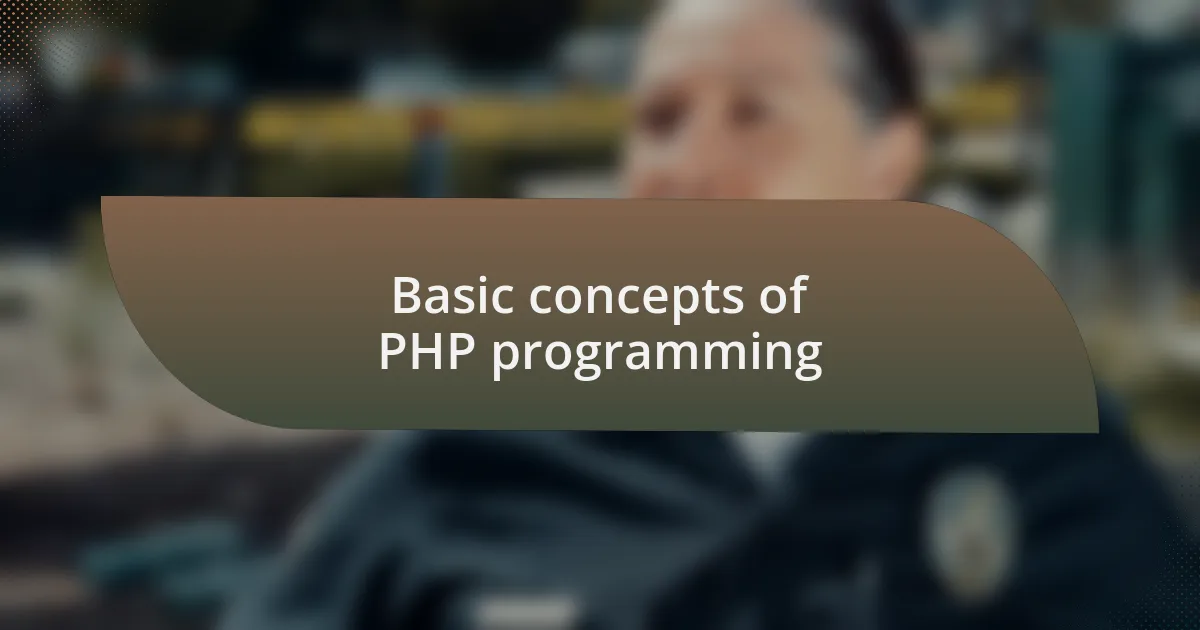
Basic concepts of PHP programming
PHP is built around a few foundational concepts that are essential for any budding coder to understand. Variables, for instance, play a crucial role as they store information that your scripts can manipulate. I vividly recall the moment I wrote my first script using variables; it felt like uncovering a hidden toolkit, enabling me to craft more complex operations.
As I delved deeper, I encountered the concept of functions, which are blocks of code designed to perform specific tasks. I remember creating a function that calculated the total cost of items in a shopping cart. This not only simplified my code but also reinforced the idea that breaking tasks into smaller, manageable parts is an effective approach to programming—much like assembling pieces of a puzzle.
Control structures, such as loops and conditionals, are vital too. They allow us to dictate the flow of our programs. One time, while building a simple game, I used a loop to repeat an action until a condition was met. Experiencing how this control over execution can create an interactive user experience was enlightening for me. Have you ever thought about how those tiny decisions in your code influence the final product? It’s a powerful realization that enhances your programming journey.
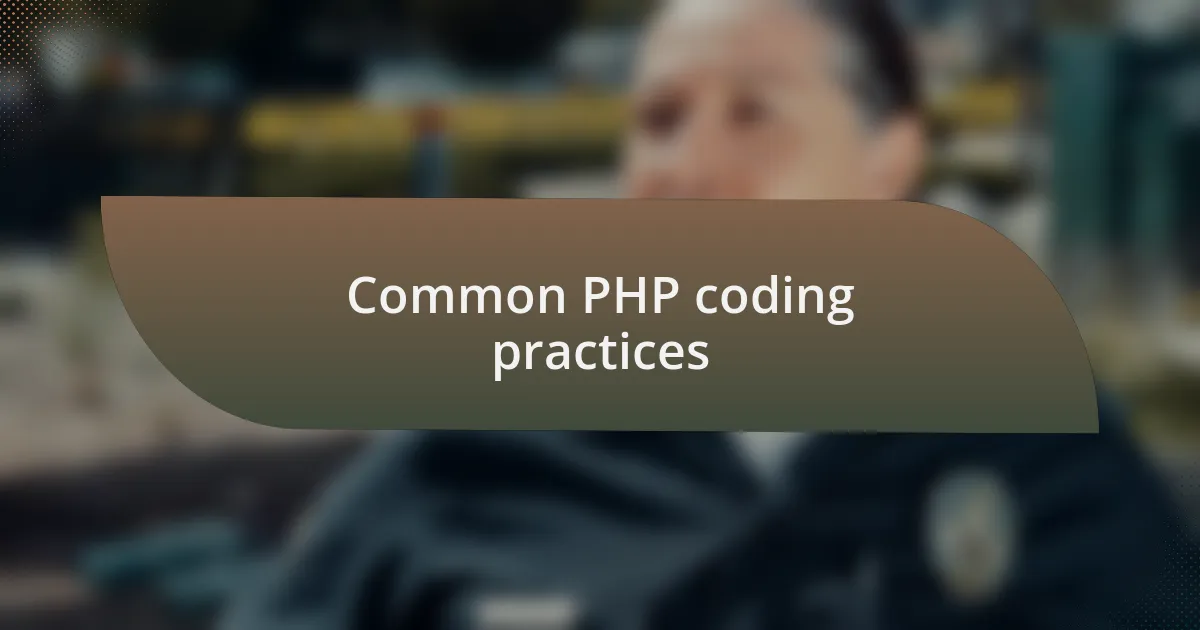
Common PHP coding practices
When it comes to common PHP coding practices, one fundamental technique that I always emphasize is the importance of code readability. I remember a particularly challenging debugging session where I was struggling to understand my own code because I had used cryptic variable names. From that point on, I made a conscious effort to adopt meaningful naming conventions. It was a game changer! Now, I always ask myself, “Would someone unfamiliar with my code find it easy to follow?”
Another practice I frequently utilize is organizing my code with comments. Early in my programming journey, I often skipped this step, thinking it was unnecessary. However, I soon realized how helpful comments can be, especially when revisiting my projects months later. They not only guide other developers but also remind me of my thought processes. It’s like leaving a breadcrumb trail for myself. Have you ever wished you had a map to navigate through your past work?
Lastly, I advocate for using version control systems like Git. In a memorable instance, I faced a significant setback when an update caused my project to break, and I had no way to revert to the previous state. Since adopting version control, I’ve gained peace of mind knowing that I can track changes and collaborate smoothly with others. It truly enhances the development experience, doesn’t it? Keeping history at my fingertips changed how I approach projects altogether.
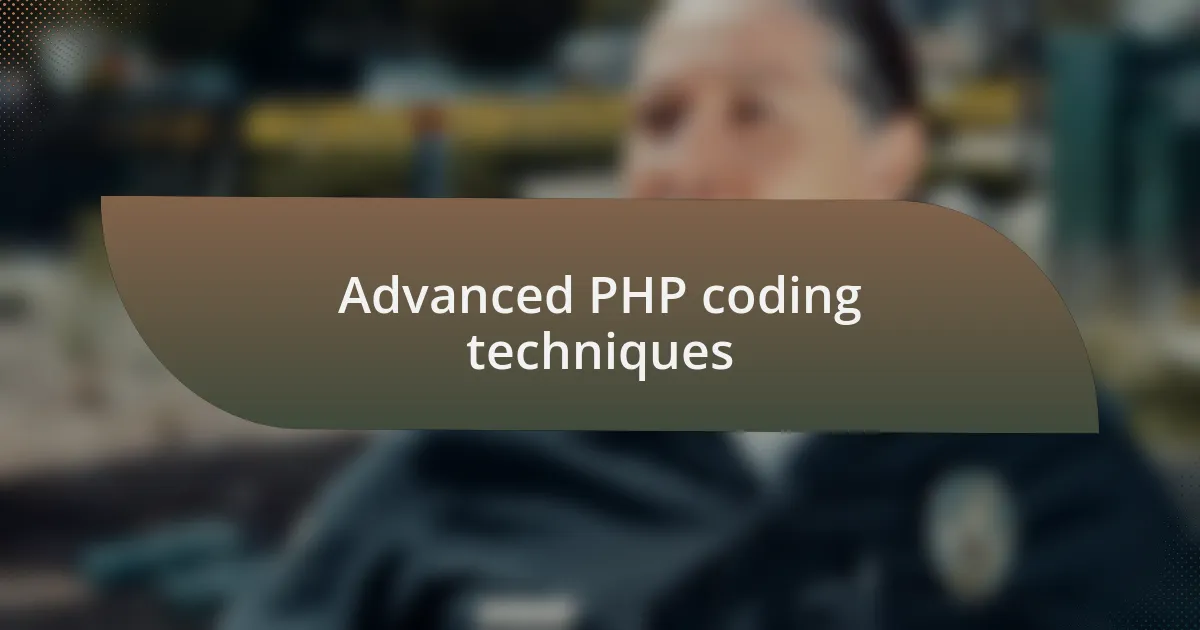
Advanced PHP coding techniques
When diving into advanced PHP coding techniques, one strategy that has significantly improved my development process is leveraging PHP’s object-oriented programming (OOP) features. I recall a project where I transformed a sprawling procedural script into a more manageable object-oriented structure. This shift not only streamlined my code but also made it easier to test and maintain. Have you experienced the frustration of debugging tangled code? OOP allows for reusable components, turning complex problems into simple, digestible objects.
Another powerful technique I’ve found is utilizing design patterns, such as the Singleton or Factory patterns. A few years back, I worked on a web application where implementing the Singleton pattern for database connections drastically reduced resource consumption. It was fascinating to watch how it resolved conflicts arising from multiple connection attempts. Design patterns provide proven solutions that enhance code quality—can you think of a time your code could have benefitted from a structured approach?
Lastly, I recommend delving into asynchronous programming with tools like PHP’s cURL for handling API requests. With a project where I needed to fetch data from multiple sources simultaneously, using cURL opened up new avenues for efficiency. The performance boost was remarkable. I often ask myself, “Why settle for synchronous processing when you can empower your applications with speed?” Embracing such techniques has reshaped how I build robust applications.
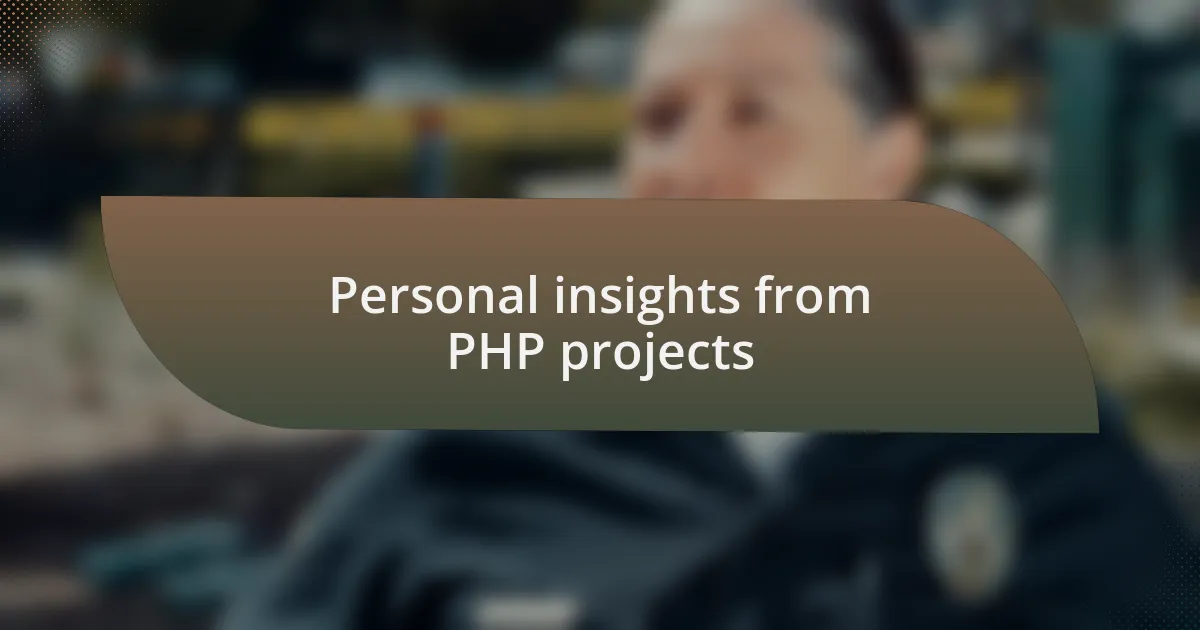
Personal insights from PHP projects
Throughout my journey in PHP coding, I’ve learned that the real magic often lies in code readability. I remember a project where I initially prioritized functionality over clarity. As I revisited that code, I found it nearly impossible to navigate without significant effort. It hit me then—good code isn’t just about getting it to work; it’s about writing it in a way that’s understandable to others (or even my future self!). Are you investing enough time in making your code legible?
I also discovered that debugging is not just a task but an opportunity for growth. During one project, I struggled with a persistent bug that seemed to appear out of nowhere. Instead of feeling frustrated, I began to view it as a puzzle to be solved. That shift in mindset made debugging less of a chore and more of an engaging challenge. Have you ever considered how overcoming a tricky bug can enhance your skills and confidence as a developer?
Lastly, collaborating with others on PHP projects opened my eyes to the power of different perspectives. On one occasion, working with a friend who had a different coding style helped me to rethink my own approaches. I realized that embracing diverse coding strategies not only enriches my knowledge but also fosters creativity. Isn’t it amazing how collaboration can drive innovation, making our projects better than we ever imagined?